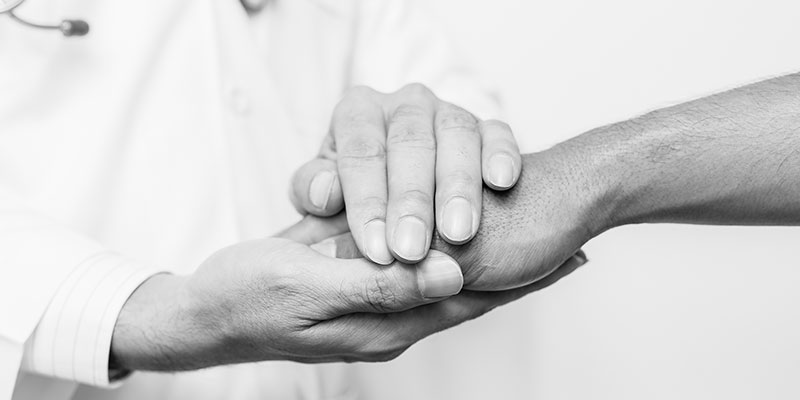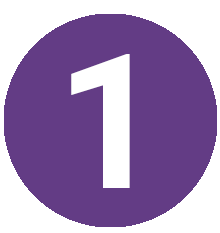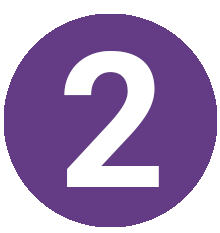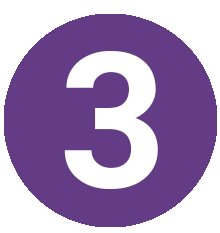Location
Our Washington Location
Our inpatient facility is located in Washington, and will serve Washington state. It will provide a safe & therapeutic environment for both our staff and patients.
- Edmonds
7416 212th St SW,
Edmonds, WA 98026
If you have a heroin addiction, you may think that recovering from it is impossible. So many who are addicted to this powerful drug feel that way. You need to know that it is possible, but it's important to take the right steps.
Heroin is an opioid drug that also goes by the names diamorphine and diacetylmorphine. On the street, it may be called: Black Tar, China White, Smack, Dope, or Junk.
No matter what you call it, it is a dangerous drug. When you're an addict, it takes over your entire life. It strips you from everything and everyone you love. Fortunately, you don't have to continue living that life. You can begin to embrace recovery, and it can even start today.

Opioid drugs are powerful. However, because so many of them are prescribed, they're often underestimated. It can take a long time to recover if you are addicted to heroin. It is a drug associated with highest likelihood of both physical and psychological addiction.
Quite often, people wrongly assume that because heroin has a short half-life, recovery should be quick. This simply isn't the case. Heroin may only stay in the body for around 45 minutes. However, its metabolites will linger for much longer. It only takes about a day and a half for heroin to leave the body. For long-time users, it may take quite a bit longer.
It's very difficult to say how long recovery may take. For some, it may take a few weeks. For others, they may suffer with the damaging effects of their addictions for years. Fortunately, treatment can help to speed up the process, but again, it's very personal.
Most people can remember the moment they realized they were hooked on this dangerous opiate drug. They may have had their first craving for it, or they could have gone through withdrawals without it.
You may still be in a position where you really aren't sure. You may think you are an addict, but you need to know for certain. You can find this out in a few different ways.
If you have any of the following signs, you may be an addict:
If the above signs of addiction aren't enough, you can try taking a heroin addiction quiz. This allows you to answer more questions about your use of this drug. Keep in mind that some of the questions may be difficult to answer, but your honesty is important. At the end, you'll be able to get your results right away.
Heroin Addiction QuizIt's very helpful to talk about your drug use with someone in the addiction treatment field. Many heroin rehab facilities offer phone consultations that are free of charge. You don't need to make any commitments during these discussions. However, you will get to hear the truth from a professional.
The best addiction treatment experts in the world agree that admitting you're addicted is the first step in recovery. This is one of the hardest steps for anyone to take. An addiction is such a powerful force in your life. It rules over everything you say, do and think. Most people prefer to live in denial, and some do for years.
Once you're able to admit that you're addicted to diacetylmorphine, you'll be ready to take the next steps. This is when you really start working on your recovery journey.

If only recovering from an opioid addiction was as easy actually becoming an addict. Unfortunately, it's not. It is very difficult, and it might be one of the most challenging things you ever do. However, it will also be one of, if not the, most rewarding thing you ever do.
If you're dependent on this opioid drug, professional treatment is the best option. Of course, there are other recovery methods available to you as well. It's important to know what all of your choices are so that you can choose what's right for you.

The very first step you should be taking in your recovery is to go through detox. Heroin detox is available to assist you with the physical part of your addiction. This is important because you need to get this component under control first. The cravings and other withdrawals you experience will be hard to manage without it. Usually, people end up relapsing unless they detox first.
There are different methods that may be used to detoxify your body. Let's take a closer look at them in detail.
Most people are familiar with medical detox. This is the treatment that involves giving you medications to help with your symptoms of withdrawal. These medications can address various issues that may arise, such as anxiety and depression. They can also be used to prevent dangerous complications, such as seizures.
In recent years, drugs like Suboxone and Subutex have become quite common during opioid withdrawal. They have been shown to help with withdrawal symptoms and they also ease cravings.
The issue is that medical detox has risks. It's possible to form secondary addictions to the medications you are given. These risks are higher for someone with a history of addiction.
In the addiction treatment field, there is a shift occurring toward more holistic methods of detox. This method doesn't involve the use of any medications during heroin recovery. Instead, it relies on improving the patient's overall health with more natural means.
For example, patients going through holistic detox will receive improved dietary plans. They may be placed on supplements. Most will become involved in regular exercise regimens. These all assist the body with getting rid of the toxins that cause withdrawal symptoms. It is a method that many have celebrated for its potential for long-term success.
Opioid withdrawal symptoms are among the most difficult to deal with. They are both physical and mental, and can last for quite some time.
Withdrawals from opioid drugs include:
You won't experience terrible withdrawal symptoms soon after your last dose. The onset of withdrawal takes a little bit of time. It's important to understand what the timeline looks like. That way, you'll know what you can expect.

The best rehab centers actually offer drug detox in-house. This is preferable for a few reasons. First of all, it's convenient for you. Second of all, you can be assured of a higher quality of continued care. Continuity is very important when you're in recovery.
During your time in the opioid rehab program, you'll begin to work on the next part of your dependence. This is the psychological part. You may not realize it, but the issues you're facing are both physical and psychological. It doesn't work to only treat one part of an addiction. In order to recover successfully, you really need to treat both parts.
As you consider entering a diamorphine rehab program, you'd like to know what you'll encounter. This is completely natural, and it's important for you to know what to expect.
There will be several important parts of your treatment at the diamorphine rehab center. Your personal needs will be taken into account when your treatment plan is designed. You'll most likely experience the following:
As you're searching for an opioid treatment facility, the search can be hard. You'll find that there are so many different options for you to choose from. You desperately want to find the right one, but how will you know when you have?
There are certain characteristics that you should be looking for, and these include:

The third step is to make an unwavering commitment to long-term treatment. Please understand that this does not mean you need to be in an inpatient treatment facility continuously. Some people do require residential treatment. However, most do very well with 30 days inpatient.
This is such an important step for you to take. In fact, it's going to be the step that helps to decrease your chances of having a relapse.
It's possible that you're just not ready to make the commitment to an inpatient heroin addiction treatment program. If that's the case, it's OK. There are other methods that you can use to recover from your addiction.
Keep in mind that these methods aren't all as safe as going to a professional treatment center. However, they are available to you, and may work if you implement them correctly.
It is possible to detox from diamorphine at home, but it is also quite risky. With detoxing at home, you run the risk of experiencing complications. If that's the case, you'll need to consult with a physician right away. However, if you're careful and prepared, you may be able to do it successfully.
If home remedies are something you want to try, follow these tips:
Perhaps you've been called upon to help someone you love through their opioid withdrawal. You need to know that your job is very important. You'll be doing so much more than just keeping them company during this time. It's important for you to know exactly what you need to do.
Talking with your doctor about your desire to recover from heroin can be difficult. It's possible that you haven't told him or her that you use any type of illegal drug. Still, you need to remember that your doctor can be a great, helpful resource for you.
If your doctor doesn't know about your heroin use, bring it up to the nurse first. Let her pass along your desire to have the discussion. This will break the ice and make it easier for you. On the other hand, if your doctor does know, they'll likely be overjoyed at your desire to quit.
Your doctor may recommend different ways for you to get help. He or she may suggest some medications to assist you through the detox phase. Most likely, you'll at least be recommended for addiction therapy.
It's possible that you're fairly comfortable with talking to a counselor, but not with going to inpatient care. If that's the case, it's OK. There are so many great counselors out there that can help you.
You should find a counselor that has a background in treating patients with addictions. Many therapists offer to see their patients with sliding scale fees if they don't have insurance.
Don't worry if you aren't happy with the first therapist you meet. It's OK to keep looking until you find one that you feel you can work with. The most important thing is for you to recover.

People often want to know, what percentage of addicts recover?. What they really want to know is, if they go to an opioid rehab center, is it going to work for them?
It's important to remember that, just like anything else, you get out of rehab what you put in. If you truly want to recover from your addiction, you will. It might be helpful to take a look at some statistics.
According to Health Research Funding:
The answer to that question is a resounding no. Most heroin rehab facilities have around a 30-40% success rate. However, relapsing is often a part of the disease of addiction. Most people will relapse several times before they ever refrain from using completely.
The National Institute on Drug Abuse took a look at addiction treatment in comparison with hypertension treatment. The success and relapse rates for both were exactly the same. This indicates that addiction behaves much like any other disease does. Relapse should be expected, even though it can be prevented.
A relapse takes place when someone who has been using drugs and quits goes back to using. It usually happens when cravings return, or when something triggers the desire to use.
This is something that you will come up with along with your therapist. Other members of the team may be involved as well.
Yes, addiction is a relapsing disease, but that doesn't mean you are destined to have one. You can make it to recovery long-term without ever suffering through a relapse. Many people have, and you can too.
If you only look at the basic drug relapse statistics, it may seem your chances of success are pretty low. However, when you dig a little deeper, you can see that there is hope.
According to Psychology Today:
During heroin addiction treatment, every effort will be made to address potential relapse triggers. However, it's nearly impossible to successfully address them all. Even with the best relapse prevention plan, the chance of relapsing is still there.
It can be helpful to know what some of the more common relapse triggers are. They include:
You should come up with a plan to deal with these and any other triggers you may experience. Any co-occurring disorders should also be addressed during your inpatient stay.
Once you are successfully in recovery, you'd like to know what happens next. Remember, diamorphine is a strong drug. Depending on how long you took it, it's likely to have had an affect on you physically and mentally. This means that you still have some recovering to do.
You may find that some of the consequences of your drug use are permanent. You may have some conditions that can be treated, but they'll never be healed. Even so, recovering now can undo a lot of the damage that has been done.
Diacetylmorphine has most likely affected you both in the short-term and in the long-term. You have probably experienced:
How long it takes for opiate receptors to heal depends completely on the individual. Unfortunately, there is no one “right” answer to this question. Everyone is just so different.
Your opioid receptors may return to normal faster if you:
It takes time to become addicted to opioid drugs. Likewise, it takes time to heal from being dependent on them as well. Each day, you do become closer. However, some experts believe that many individuals with long-term addictions may not ever return to complete normalcy.
Most of the time, yes, you can. However, again, this depends on several factors. They include:
Your brain is such a complex organ, but it is capable of healing and repairing itself. In order to do so successfully, proper treatment must be acquired.
Heroin addicts commonly deal with depression, anxiety and a host of other issues. These need to be treated long after rehab has come to an end. If you are diligent in obtaining the type of treatment you need, you may be able to undo some damage.
If you decide to, you can spend years beating yourself up over your drug abuse. You can dwell on the time you lost with your spouse, children and friends. You can think about all the lost opportunities and the mistakes you made. Or, you can also take a different approach.
More than anything, you just want to be happy. That's what most people want, isn't it? There are ways that you can be happy and leave your life of drug use behind for good. Try these tips to help:
Above all, stay in treatment for as long as it's recommended for you. This will help you avoid a relapse and it will keep you feeling great about yourself too.
If you're addicted to heroin, the time for you to act is right now. Here at Northpoint Washington, we've done our best to outline your options for recovery. Now that you know, it's time for you to take the next step. Keep in mind, it's a step only you can take.
Recovering from an addiction is hard, but it's also possible when you have the right support. Now is not the time for you to give up. Your dependency on this drug does not have to rule over your life any longer. The help you need to quit is available to you.

Our admissions coordinators are here to help you get started with treatment the right way. They'll verify your health insurance, help set up travel arrangements, and make sure your transition into treatment is smooth and hassle-free.
[DirectNumber] Contact Us